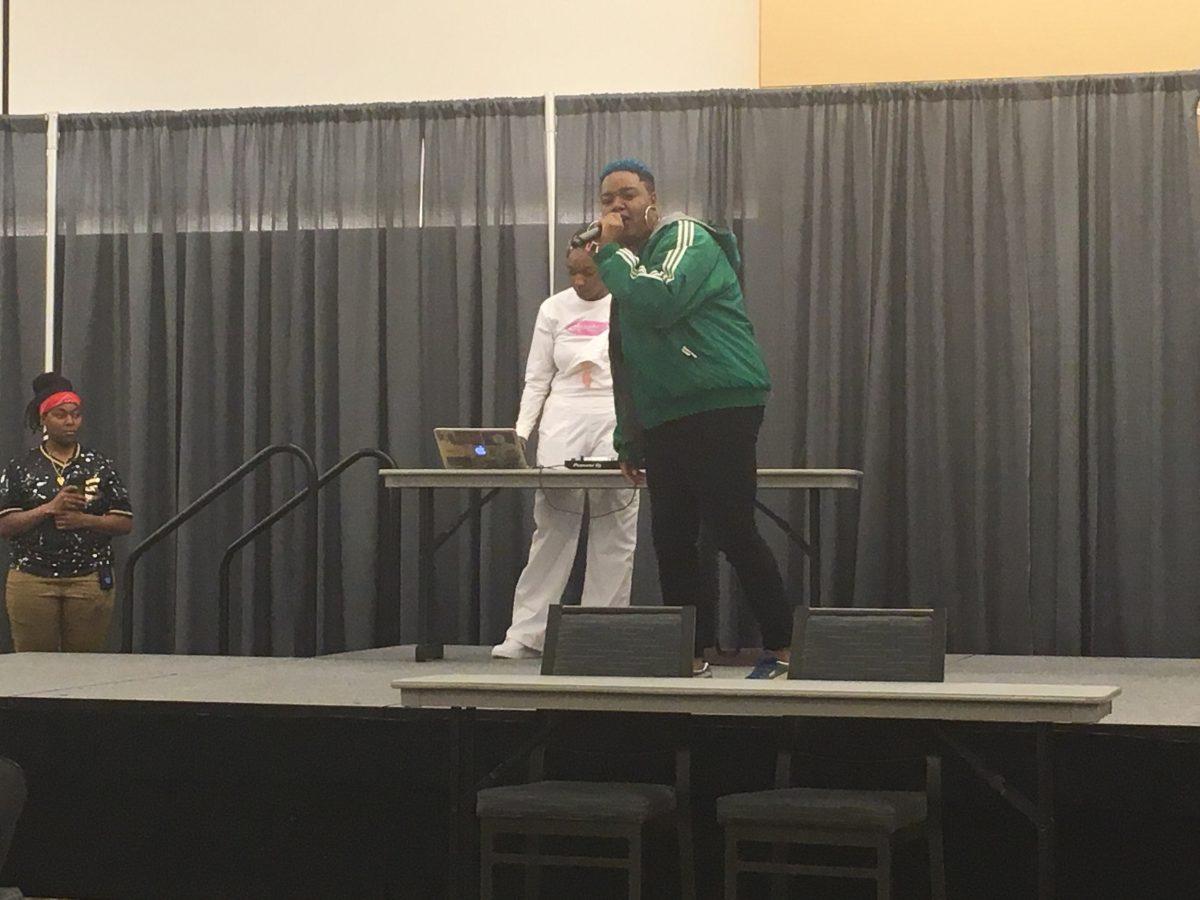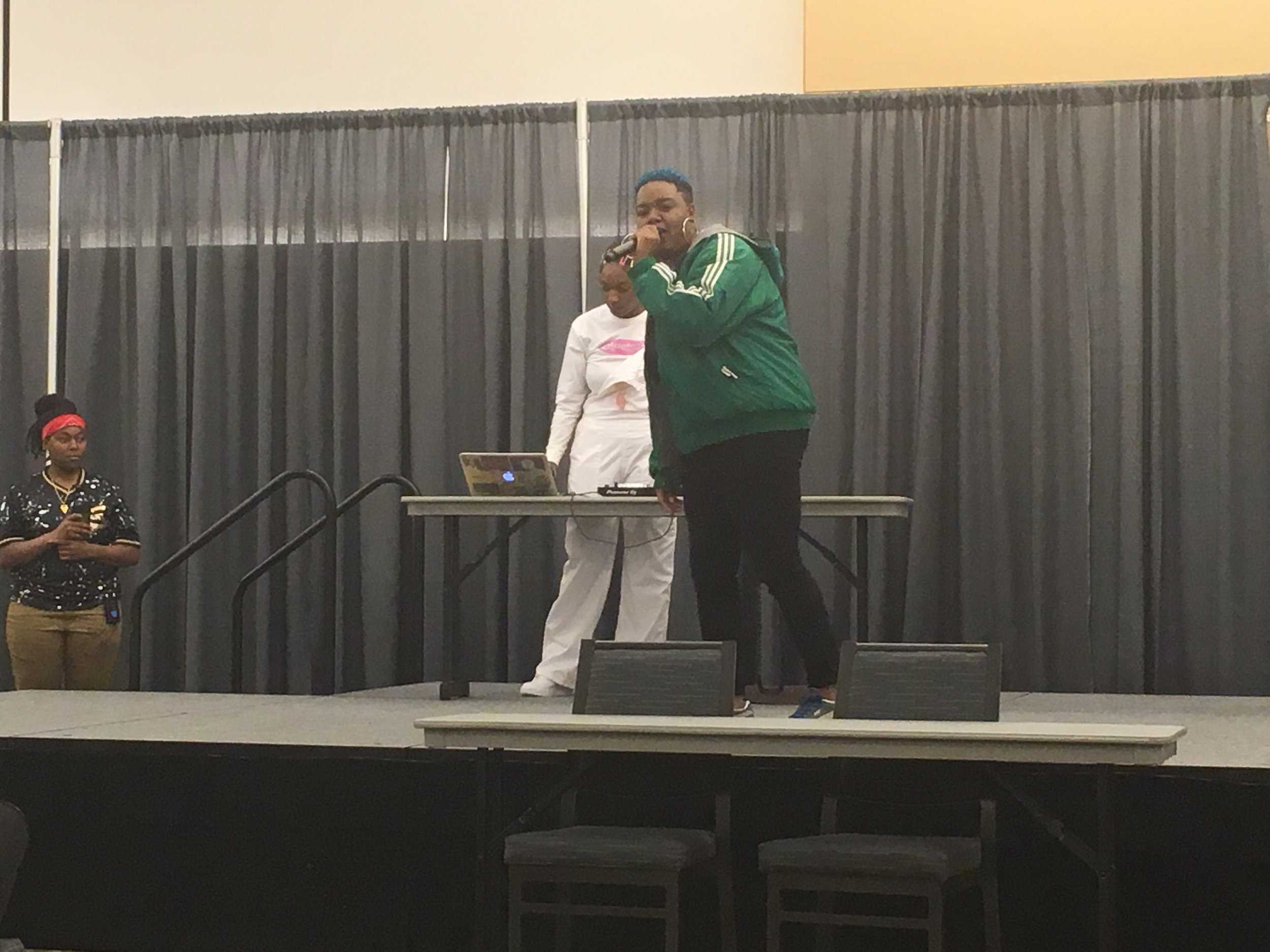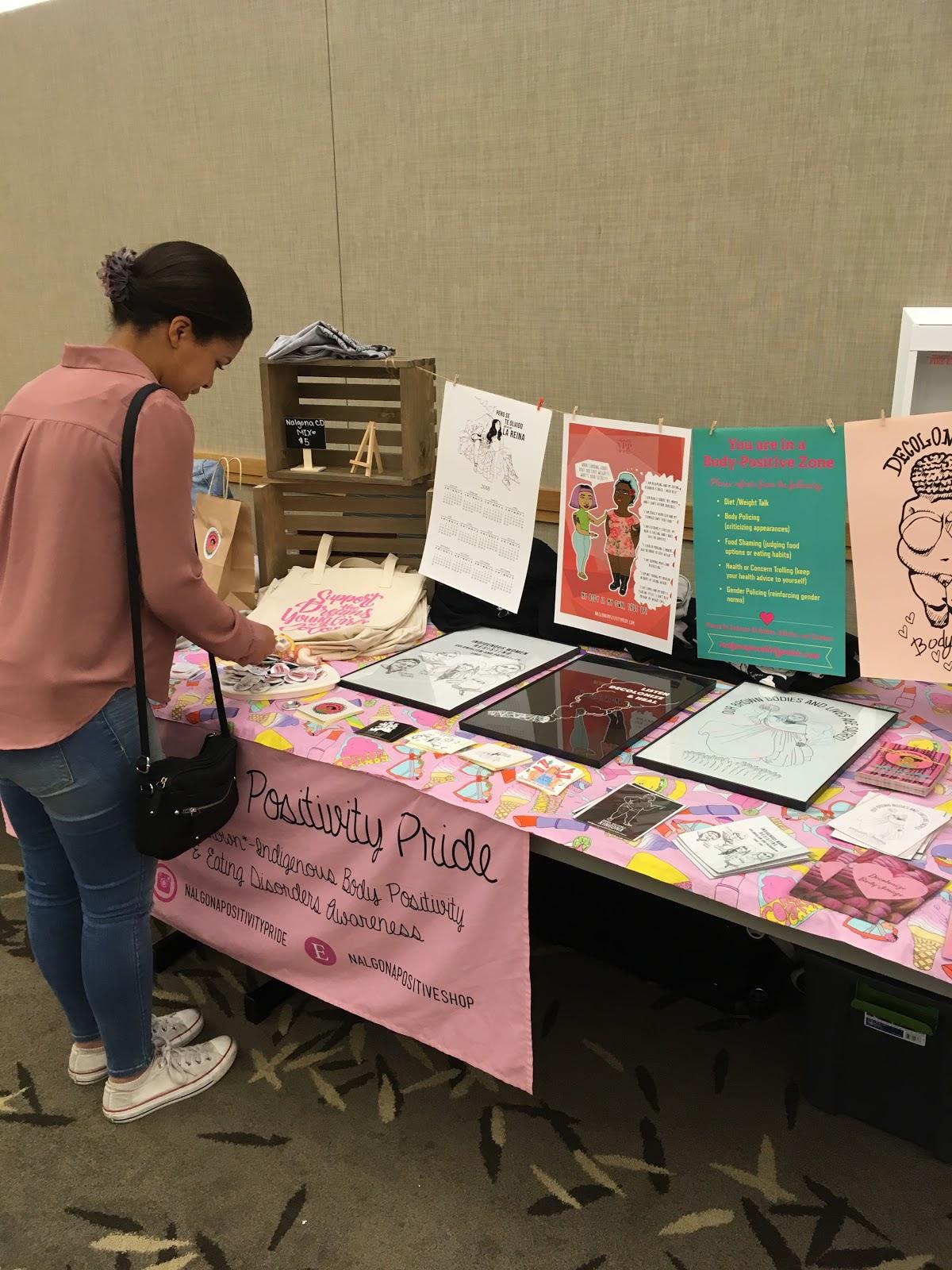“Who are the indigenous people who belong to the land we are on right now?” asked Gloria Lucas, founder of the Nalgona Positivity Pride to those gathered for the Second Annual North Bay Womxn of Color Conference at Sonoma State University on Saturday.
She continued, “When we talk about healing we start with the land… I am a guest on this land.” Several audience members snapped their fingers, agreeing to her statement. Mujeres Activas en Letras y Cambio Social (Women Active in Letters and Social Change) and the Chicanx Student Movement of Aztlán organized this event. This year’s theme focused on how digital spaces have allowed women of color to create multidimensional platforms, which serve to share knowledge, create safe spaces, build business and transform communities.
Lucas, who describes herself as a south L.A.-based riot girl, eating disorder survivor, daughter of immigrant parents and self-named “hood knowledge seeker,” was the keynote speaker for the conference.
Lucas founded Nalgona Positivity Pride in 2014 when she became aware of the lack of help and awareness for communities of color. Nalgona Positivity Pride is a xicana-indigenous body positive organization focused on the education of eating disorders and community based support for people of color. Lucas spoke about her story, her mission and the support groups available from NPP, including Te con Miel, Sage and Spoon and Trensitas.
The conference also had two sessions of workshops. One of the workshops available was Melissa Vargas’ “From IRL to URL: How Latinx Activism is Transforming Contemporary Media Spaces.”
Vargas is a senior at SSU majoring in sociology and Chicano and Latino studies, with a minor in philosophy. She is the current chair of MALCS and co-chair of the Chicanx Studies Club. Her workshop included discussion of how social media platforms has made it easier and more accessible for the experiences of marginalized and underrepresented identities to be expressed and heard.
Lucas said, “social media users can increase the awareness of certain issues, offer a solution and influence participant action.”
Abeni Jones, a black transgender communications professional, educator and poet from Oakland, hosted another workshop. She focused on the conversation surrounding mental health and the lack of support for marginalized women of color, the disabled and immigrant communities.
There was entertainment by OHMi, a performer who rapped about social justice-related issues and described herself as a “rich black girl representing.” One of the songs performed was the song “Take it Back,” with lyrics including, “dealing with issues we had to endure, before we were coerced to file a divorce, to separate us from our culture.”
A vendor named Ana Salgada sold Munecas Queretanas, dolls originated from Queretaro, Mexico. The dolls she sold were made by women she met in Mexico. It started from a collective of women who made dolls for stress therapy. It is a form of therapy for the women and an economic resource. Each doll is unique.
An organization that had a booth at the conference was Raizes Collective. Isabel Lopez founded the non-profit that focuses on making programs for people of color with intergenerational spaces. Lopez said she strives to support people of color and the undocumented community. The nonprofit created various art workshops, poetry sessions and trips like Write the Power, a free event for students to write creatively in the Redwoods with their families. The programs are all funded by grants that Lopez works to get.
“As an immigrant from Mexico, I believe that art and culture is a huge way that our communities heal from all of the adversities we have experienced,” Lopez said.
Lopez also said she believes it’s important for events like the NBWCC to be in schools because, “students see reflections of themselves not seen in the current dominant narrative,” she said.
The NBWCC is for people of color to learn and share in a safe space. The workshops, vendors and performers used the platform to discuss social justice issues and the experiences of indigenous people.





![[Both photos courtesy of sonoma.edu]
Ming-Ting Mike Lee stepped in as the new SSU president following Sakakis resignation in July 2022](https://sonomastatestar.com/wp-content/uploads/2024/04/CC4520AB-22A7-41B2-9F6F-2A2D5F76A28C-1200x1200.jpeg)




























